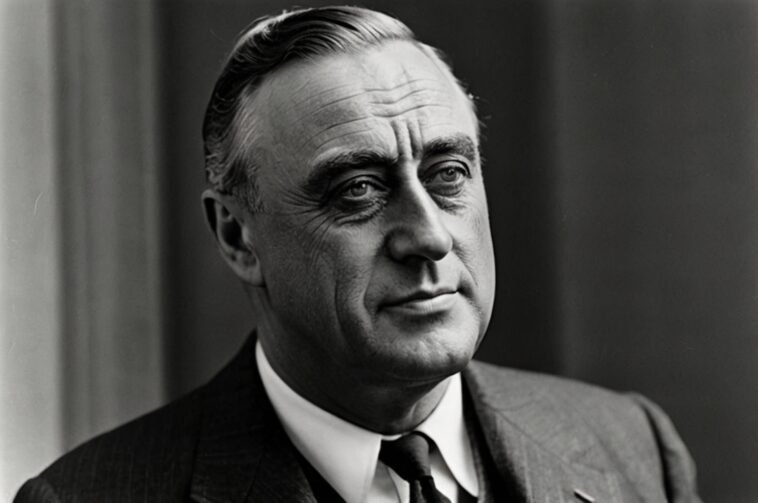
The 20th century was a time of rapid change, political upheaval, and technological advancement.
From the World Wars to the Space Race, the century gave rise to some of the most influential figures in history.
These individuals shaped the world with their leadership, inventions, creativity, and movements.
In this blog post, we’ll explore the impact of various world leaders, scientists, inventors, and cultural icons who left an indelible mark on the 20th century.
World Leaders and Statesmen
The 20th century was marked by major political shifts, largely driven by influential world leaders who left lasting impacts on their nations and the world.
Adolf Hitler
Adolf Hitler, the dictator of Nazi Germany, led the world into World War II with his expansionist ambitions and belief in racial superiority.
His regime was responsible for the Holocaust, where six million Jews were murdered.
His impact on history is a tragic reminder of the dangers of hate, authoritarianism, and unchecked power.
Winston Churchill
Winston Churchill is remembered as a symbol of determination and leadership during World War II.
As Prime Minister, his speeches and resilience inspired the British people to stand firm against Nazi Germany.
His famous words, “We shall never surrender,” remain a powerful example of leadership in times of crisis.
Franklin D. Roosevelt
Franklin D. Roosevelt led the United States through two of its toughest times: the Great Depression and World War II.
His New Deal programs helped stabilize the economy, and his leadership during the war strengthened
America’s global position, paving the way for the U.S. to become a world superpower.
Joseph Stalin
Joseph Stalin ruled the Soviet Union with an iron fist, leading it through World War II and into the Cold War.
While his leadership helped industrialize the country and build it into a superpower, his brutal policies led to millions of deaths through purges, forced labor camps, and famine.
Mao Zedong
Mao Zedong founded the People’s Republic of China in 1949 after leading the Communist Party to victory.
His policies, such as the Great Leap Forward and the Cultural Revolution, transformed China but also caused widespread suffering, including famine and political persecution.
Nelson Mandela
Nelson Mandela became a global icon for his fight against apartheid in South Africa.
After spending 27 years in prison, he became the nation’s first Black president and worked to unite a divided country.
Mandela’s leadership and commitment to justice earned him the Nobel Peace Prize and worldwide respect.
Mahatma Gandhi
Mahatma Gandhi led India’s fight for independence from British rule through peaceful, nonviolent means.
His philosophy of nonviolence, known as ahimsa, not only helped India gain independence in 1947 but also inspired civil rights movements around the world, making him a global symbol of peaceful protest.

Scientists and Inventors
The 20th century brought us remarkable discoveries that transformed the way we live, work, and understand the world.
These scientists and inventors made groundbreaking contributions that shaped modern science, medicine, and technology.
Albert Einstein
Albert Einstein changed the way we think about the universe with his theory of relativity, which reshaped our understanding of space, time, and energy.
His famous equation, E=mc², became the foundation for nuclear energy and even the development of atomic power.
Einstein’s work is still central to modern physics.
Marie Curie
Marie Curie was a trailblazer in the study of radioactivity.
She became the first woman to win a Nobel Prize and remains the only person to win Nobel Prizes in two different fields—physics and chemistry.
Her discoveries opened the door to new cancer treatments and advanced our understanding of atomic science.
Alan Turing
Alan Turing played a crucial role during World War II by helping to crack the Nazi Enigma code, which was vital to the Allied victory.
Beyond that, he is considered the father of modern computer science.
His work laid the groundwork for artificial intelligence and the computers we use today.
Alexander Fleming
In 1928, Alexander Fleming discovered penicillin, the first antibiotic, which revolutionized medicine by providing an effective treatment for bacterial infections.
His breakthrough has saved millions of lives and marked the start of the antibiotic era, a pivotal moment in medical history.
Jonas salk
Jonas Salk developed the first effective polio vaccine in 1955, which nearly eradicated a disease that had left thousands of children paralyzed each year.
His work is celebrated as one of the greatest public health achievements of the 20th century, and his vaccine continues to protect people around the world.
Steve Jobs
Steve Jobs co-founded Apple and led a technological revolution by making personal computing and smart devices more accessible to everyone.
His vision brought us the iPhone, iPad, and iPod, changing the way we communicate, work, and entertain ourselves.
Jobs’ innovations continue to shape the digital world today.

Artists and Intellectuals
The 20th century was a time of immense cultural change, driven by brilliant artists and thinkers who challenged conventions and reshaped the way we see the world.
Their influence still resonates in modern culture.
Pablo Picasso
Pablo Picasso is considered one of the most influential artists of the 20th century.
He co-founded the Cubist movement, which broke away from traditional ways of representing the world.
His famous painting Guernica is not only a masterpiece of modern art but also a powerful anti-war statement, depicting the horrors of the Spanish Civil War.
Salvador Dalí
Salvador Dalí pushed the boundaries of art with his surrealist work, blending reality and fantasy.
His famous painting The Persistence of Memory, with its melting clocks, is a visual exploration of time and the subconscious mind.
Dalí’s dreamlike, bizarre style continues to captivate audiences and challenge how we view reality.
Ernest Hemingway
Ernest Hemingway’s writing is known for its simplicity and depth.
He explored themes of courage, struggle, and human emotion with a minimalistic style.
His novel The Old Man and the Sea earned him a Nobel Prize, and his works continue to be admired for their emotional power and insights into the human condition.
F. Scott Fitzgerald
F. Scott Fitzgerald captured the glamour and emptiness of the 1920s in his novel The Great Gatsby.
Through the tragic story of Jay Gatsby, he offered a critique of the American Dream and the pursuit of wealth.
Fitzgerald’s elegant prose and exploration of social issues make his works timeless.
Virginia Woolf
Virginia Woolf was a key figure in modernist literature and a champion of women’s rights.
Her novels, such as Mrs. Dalloway and To the Lighthouse, used stream-of-consciousness writing to delve into the inner lives of her characters.
Woolf’s exploration of gender roles, mental health, and identity continues to inspire readers and feminist movements.
Martin Luther King Jr.
Martin Luther King Jr. was a central figure in the American Civil Rights Movement.
Through his powerful speeches and nonviolent activism, he fought for racial equality and justice.
His famous “I Have a Dream” speech remains a symbol of hope and the ongoing fight for civil rights.
King’s legacy as a leader and a voice for peace earned him the Nobel Peace Prize in 1964

Other Notable Figures
The 20th century was full of extraordinary individuals who made their mark in different fields, from aviation and entertainment to sports and politics.
These figures continue to inspire and captivate us.
Amelia Earhart
Amelia Earhart was a pioneering figure in aviation history.
She became the first woman to fly solo across the Atlantic Ocean, breaking barriers in a male-dominated field.
Her courage and adventurous spirit inspired many, but her mysterious disappearance in 1937, during an attempt to fly around the world, has left us with one of history’s enduring mysteries.
Marilyn Monroe
Marilyn Monroe was the ultimate symbol of Hollywood glamor in the 1950s, known for her beauty, charm, and unforgettable roles in films like Some Like It Hot.
While she embodied the image of a glamorous movie star, she also struggled with personal challenges behind the scenes.
Monroe’s life, full of highs and lows, continues to fascinate and make her a cultural icon.
Muhammad Ali
Muhammad Ali was not only a boxing legend, known for his incredible skill and charisma in the ring, but also a powerful voice for social justice.
He stood firm in his beliefs, speaking out against racial inequality and the Vietnam War.
Ali’s influence extended far beyond sports, making him one of the most admired and influential figures of the 20th century.
John F. Kennedy
John F. Kennedy, the 35th President of the United States, led the country through pivotal moments such as the Cuban Missile Crisis and the push for civil rights.
His vision for space exploration paved the way for the Apollo 11 moon landing in 1969, fulfilling his famous promise to put a man on the moon.
Kennedy’s leadership and inspiring speeches left a lasting impact on American history.
Princess Diana
Princess Diana was beloved for her warmth, kindness, and dedication to humanitarian causes.
She used her platform to raise awareness about important issues, from HIV/AIDS to landmine removal.
Her ability to connect with people, regardless of their background, earned her the title of “The People’s Princess.”
Even after her tragic death in 1997, Diana’s legacy of compassion continues to inspire.

Final Thoughts
The 20th century brought us many remarkable people who changed the world in areas like politics, science, and the arts.
Their contributions still shape our lives today, showing us the lasting impact of leadership, creativity, and new ideas.
Their legacies remind us of the power we all have to make a difference in the world.



